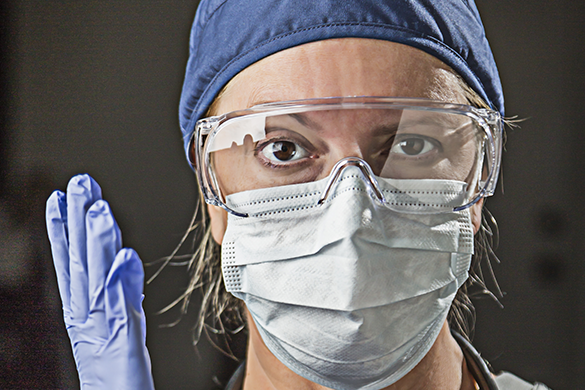
As the COVID-19 pandemic has stretched on, one thing has become apparent: Indiana's health care providers are under a tremendous amount of pressure to provide services that Hoosiers desperately need. The nursing shortage and resulting strain on the workforce have been primary factors. Consider this: Indiana currently has nearly 4,300 job openings for nurses each year, and we are projected to need an additional 5,000 nurses by 2031 to meet the growing demands of an aging population. In other words, on average, Indiana would need to graduate 1,300 additional nurses per year until 2030 to meet the state's current health care needs. Thus, providers have urged Indiana's leaders to develop policies that will alleviate some of their workforce concerns and bring the health care industry out of the COVID-19 pandemic in better shape than it was two years ago.
IHA, in partnership with Ivy Tech and other stakeholders, brought solutions to address this urgent issue in the 2022 legislative session. Termed “Nursing Indiana Back to Health," the legislation took shape in House Enrolled Act (HEA) 1003, authored by Rep. Ethan Manning (R-Denver), which took effect upon its passage and signature by the Governor earlier this year. The new law removes limits on how fast two and four-year nursing programs can grow their enrollment totals, allows nursing schools to replace some required clinical hours with simulation hours, and allows two-year programs to hire more part-time faculty.
“The more flexibility in training and licensure of nurses that we allow for, the more likely it is that Indiana will be able to grow the pipeline of new and existing talent to the workforce," said IHA Vice President of Government Relations Trent Fox.
Ivy Tech President Dr. Sue Ellspermann also advocated for the legislation.
“Ivy Tech has the largest ASN program in the nation graduating over 1,300 nurses per year and more than 90% of those nursing graduates remain in the state," Ellspermann said. “This means that Ivy Tech plays a unique role in filling the workforce need for the State of Indiana."
In its testimony, Ivy Tech shared that it had turned away 300 qualified students last year, citing an inability to properly handle the increased capacity. With the passage of HEA 1003 and the loosening of enrollment restrictions, the college will be able to accept more students and will likely ask the General Assembly for increased funding during next year's budget-writing process. At a high level, Ivy Tech will need at least $8.7 million in recurring funding and $12.1 million in one-time funding for equipment.
“Ivy Tech was created to fill an important higher education role in communities across the state," Ellspermann said. “We are the State's workforce engine, and it is within our mission to meet employer and community demands with students who graduate with the skills and training to make our communities thrive."
The IHA thanks Rep. Manning for his stewardship of the healthcare industry and applauds the General Assembly for passing such a critical piece of legislation, with bipartisan support. HEA 1003 sends the message that Indiana considers finding solutions to the nursing shortage to be of vital importance. This legislation is a monumental step forward for those providers on the frontlines – who may be stretched thin at the moment – to find comfort in knowing that reinforcements are coming.
